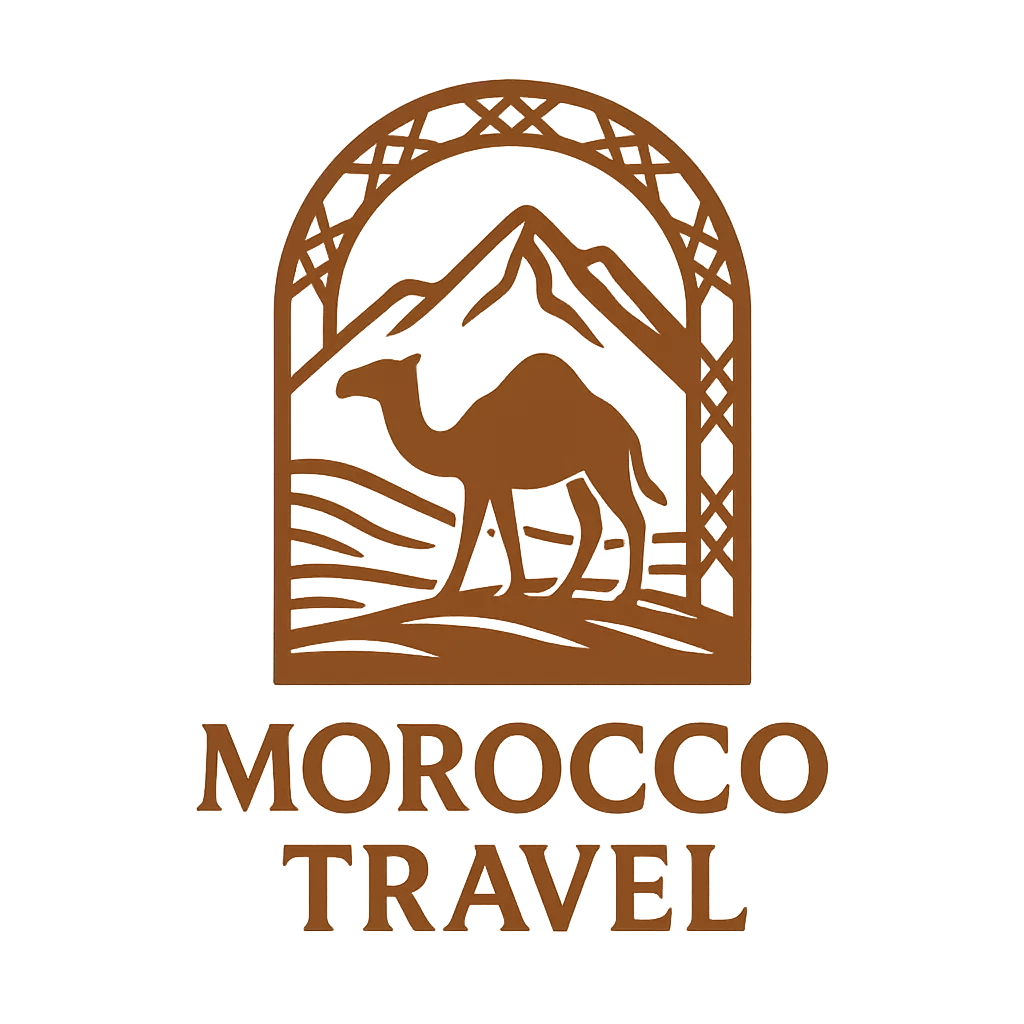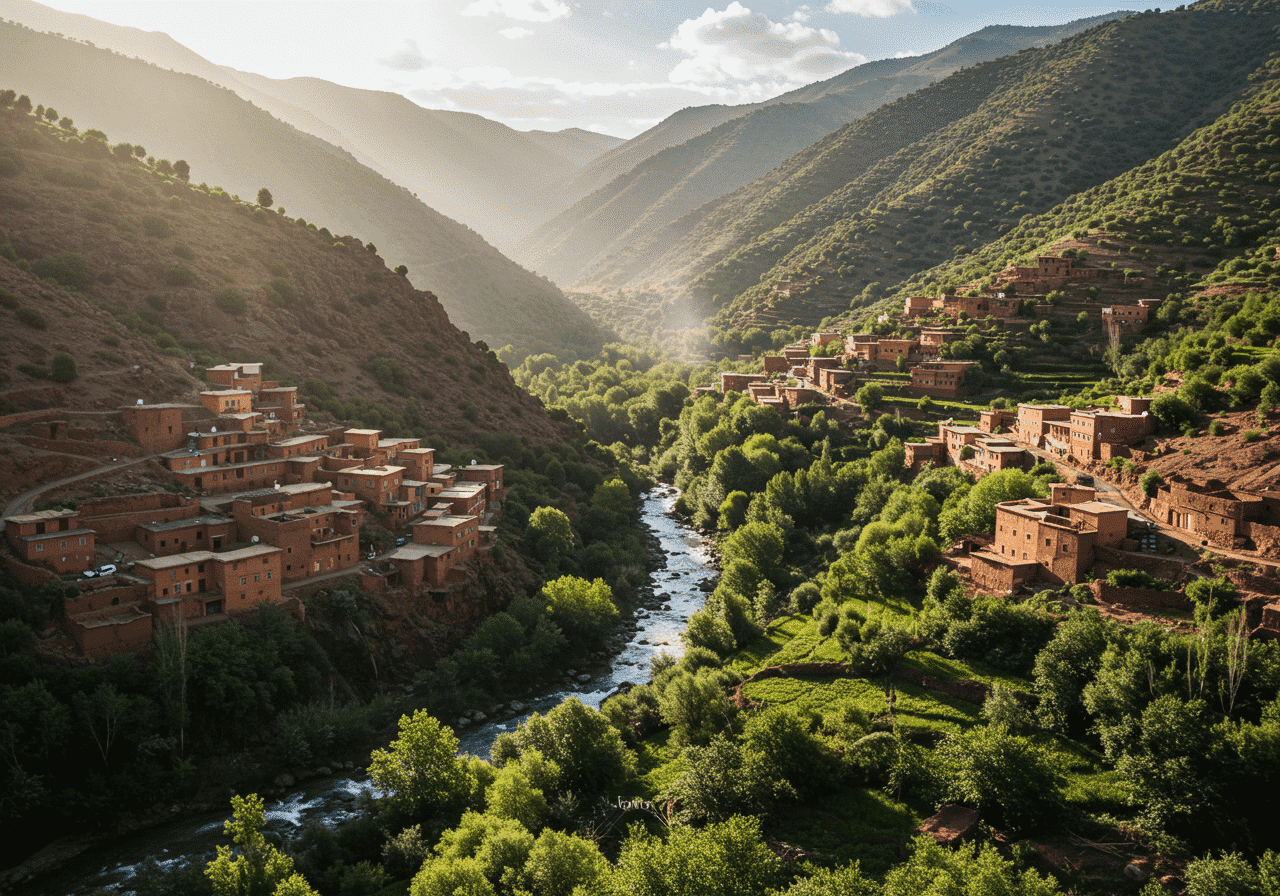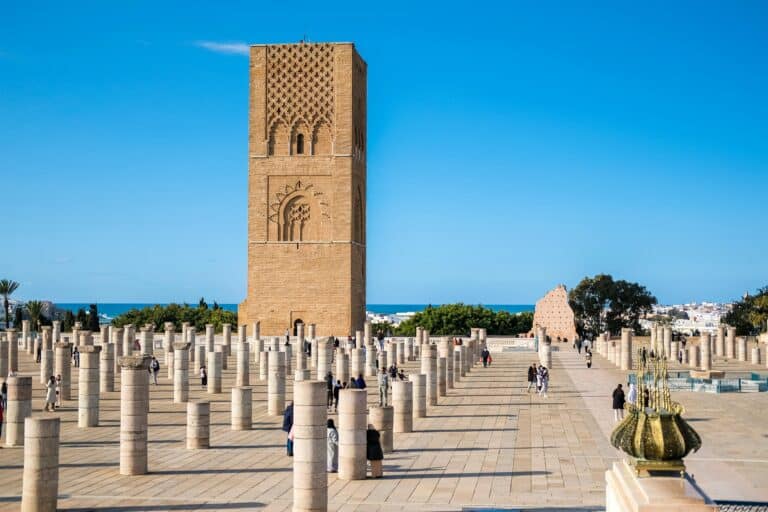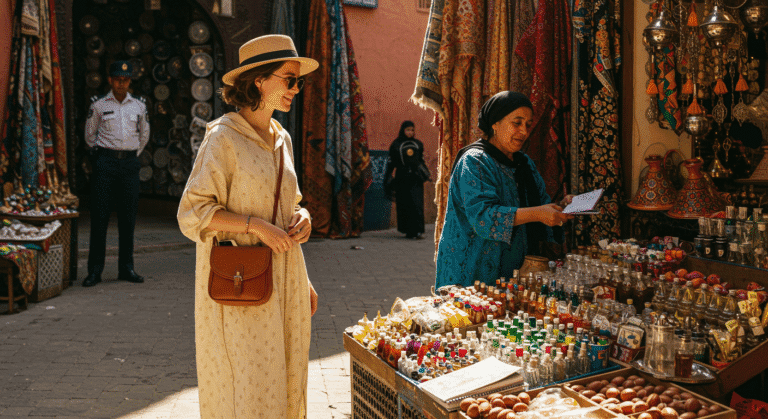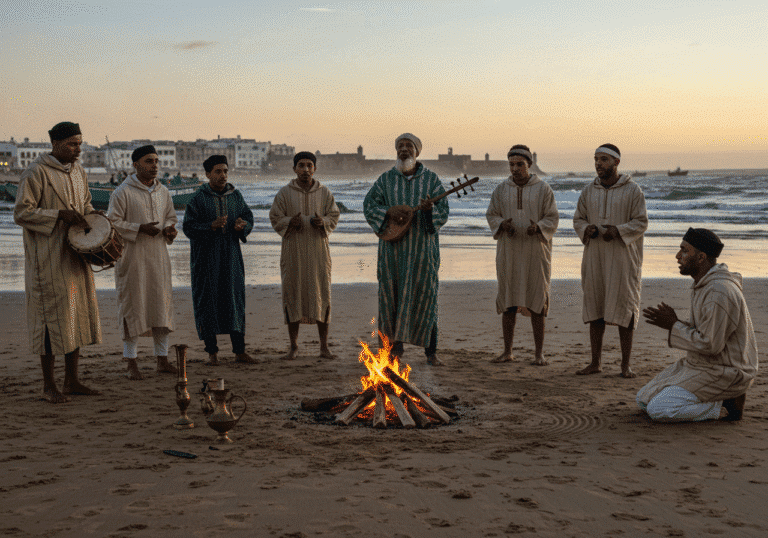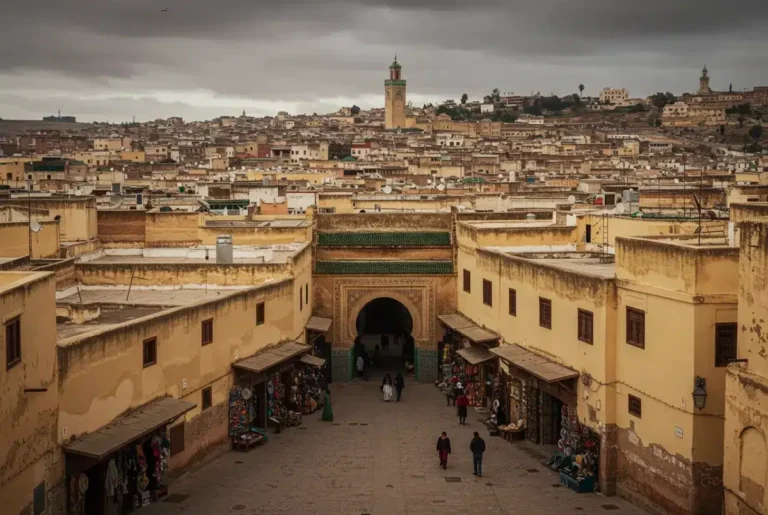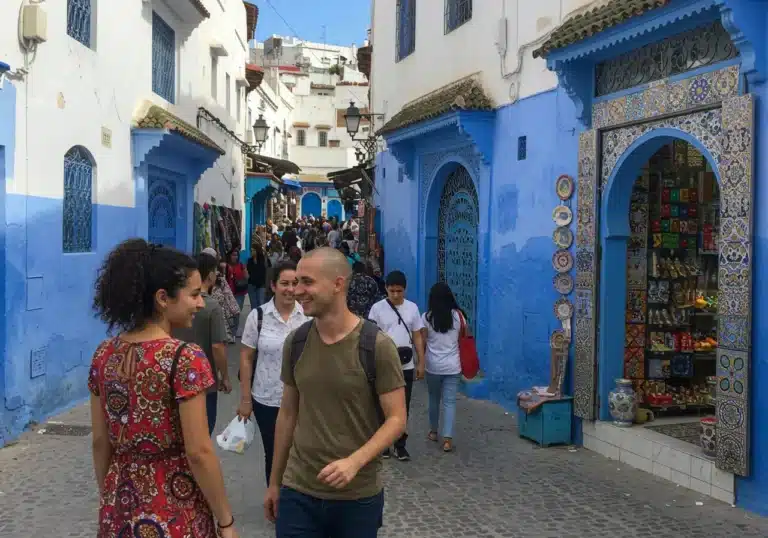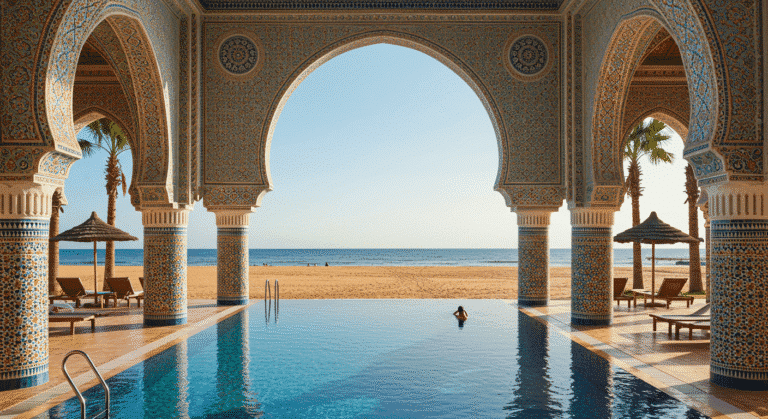Ourika Valley Day Trip: Berber Villages & Waterfalls
Discover the hidden gem just 45 minutes from Marrakech’s bustling medina
Introduction: Escape to Morocco’s Green Paradise
Did you know that less than 30% of visitors to Marrakech venture beyond the city limits to explore the breathtaking Atlas Mountains? While tourists crowd the famous Jemaa el-Fnaa square, a lush paradise awaits in the Ourika Valley where cascading waterfalls meet traditional Berber villages, and the air carries the scent of wild mint and mountain springs.
This comprehensive guide reveals everything you need to transform a simple day trip into an unforgettable journey through authentic Morocco, complete with insider tips that will save you both time and money while ensuring you experience the valley like a local.
Essential Packing Guide: Mountain-Ready Essentials
The Smart Traveler’s Checklist
Footwear That Won’t Fail You:
- Sturdy hiking boots or trail shoes with good grip (the waterfall paths can be slippery)
- Comfortable walking sandals for the drive and village exploration
- Avoid new shoes blisters can ruin your mountain adventure
Weather-Adaptive Clothing:
- Lightweight, long-sleeved shirt for sun protection and cultural respect
- Quick-dry pants or leggings suitable for hiking
- Light jacket or fleece (mountain temperatures drop 10-15°F from Marrakech)
- Sun hat with chin strap for windy mountain conditions
Tech and Comfort Essentials:
- Portable phone charger (mountain signal drains batteries faster)
- Waterproof phone case for waterfall photography
- Small daypack for hands-free hiking
- Water bottle (at least 1.5 liters per person)
- Sunscreen SPF 30+ (mountain UV is intense)
Cultural Considerations: Pack modest clothing that covers shoulders and knees when visiting traditional Berber villages. This shows respect and often leads to warmer welcomes from local families.
Optimal Travel Timing: When Nature Shows Its Best Face
Spring (March-May): The Golden Window
Why It’s Perfect:
- Average temperatures: 68-77°F (20-25°C)
- Waterfall flow at peak volume from mountain snowmelt
- Wildflowers bloom across mountain slopes
- Tourist crowds 40% lower than summer months
Summer (June-August): Early Morning Magic
Beat the Heat Strategy:
- Start your journey by 7 AM to avoid midday temperatures (can reach 95°F/35°C)
- Higher tourist volume but longer daylight hours
- Best for photography with crystal-clear mountain air
Fall (September-November): The Sweet Spot
Local Secret:
- Perfect hiking weather with temperatures around 70-75°F (21-24°C)
- Pomegranate and walnut harvest season in villages
- Shoulder season pricing saves 20-30% on tours
Winter (December-February): Dramatic Beauty
For the Adventurous:
- Snow-capped Atlas peaks create stunning backdrops
- Fewer tourists mean authentic village interactions
- Pack warm layers morning temperatures can drop to 40°F (4°C)
Detailed Itinerary: Your Perfect Day Unfolds
Early Morning (7:00-9:00 AM): The Journey Begins
Route Strategy: Take the scenic R203 road from Marrakech, winding through traditional villages and argan groves. The 45-minute drive offers mountain views that build anticipation.
First Stop – Tnine Ourika Market (if visiting Monday): This weekly souk provides authentic Berber culture away from tourist markets. Budget 30 minutes to browse handwoven carpets, fresh produce, and traditional pottery.
Mid-Morning (9:00 AM-12:00 PM): Setti Fatma Village Adventure
The Waterfall Trek:
- Difficulty Level: Moderate (1.5-2 hours round trip)
- Trail Highlights: Seven waterfalls cascade down mountain terraces
- Local Guide Tip: Hire a village guide (20-30 MAD/$2-3) for hidden viewpoints and safety
- Photography Gold: Third waterfall offers the best backdrop with traditional mountain village views
Village Immersion Experience: Visit local families who welcome tourists for mint tea and homemade bread. This authentic interaction costs around 50 MAD ($5) per person and directly supports the community.
Midday (12:00-2:00 PM): Culinary Mountain Feast
Riverside Restaurant Recommendations:
Le Maquis du Toubkal (Mid-range):
- Traditional tagines with mountain-grown vegetables
- Riverside terrace with waterfall sounds
- Price range: 80-120 MAD ($8-12) per person
- Specialty: Lamb tagine with dried fruits and almonds
Kasbah Bab Ourika (Upscale):
- Gourmet Moroccan cuisine with modern presentation
- Panoramic Atlas Mountain views
- Price range: 200-300 MAD ($20-30) per person
- Must-try: Trout from local mountain streams
Budget-Friendly Local Spots: Village cafés offer hearty meals for 40-60 MAD ($4-6), featuring fresh bread, local honey, and seasonal fruits.
Afternoon (2:00-5:00 PM): Cultural Deep Dive
Berber Village Exploration:
- Traditional Architecture: Mud-brick houses built into mountainsides
- Local Crafts: Watch women weave carpets using centuries-old techniques
- Argan Oil Production: Visit cooperatives where Berber women extract precious argan oil
- Cultural Exchange: Learn basic Berber phrases locals appreciate the effort
Optional Activities:
- Mule Trekking: 2-hour mountain trail rides (150-200 MAD/$15-20)
- Pottery Workshop: Create traditional Berber ceramics (100 MAD/$10)
- Garden Visits: Explore traditional terraced gardens with medicinal plants
Late Afternoon (5:00-6:30 PM): Sunset and Return
Perfect Ending: Stop at panoramic viewpoints on the return journey for sunset photos over the Atlas Mountains. The golden hour light transforms the valley into a photographer’s paradise.
Comprehensive Budget Breakdown: Real Costs for Real Travelers
Transportation Options:
Shared Taxi (Grand Taxi):
- Cost: 30-40 MAD ($3-4) per person each way
- Duration: 45-60 minutes
- Pros: Authentic local experience, budget-friendly
- Cons: Departs when full, less comfortable
Private Car Rental:
- Cost: 300-500 MAD ($30-50) per day
- Fuel: 100-150 MAD ($10-15)
- Pros: Freedom, air conditioning, luggage space
- Cons: Mountain driving requires confidence
Organized Day Tour:
- Cost: 400-800 MAD ($40-80) per person
- Includes: Transportation, guide, sometimes lunch
- Pros: Hassle-free, local expertise
- Cons: Fixed schedule, larger groups
Daily Budget Estimates:
Budget Traveler (1 person):
- Transport: 80 MAD ($8)
- Food: 100 MAD ($10)
- Activities: 50 MAD ($5)
- Total: 230 MAD ($23)
Mid-Range Explorer (1 person):
- Transport: 200 MAD ($20)
- Food: 200 MAD ($20)
- Activities: 150 MAD ($15)
- Total: 550 MAD ($55)
Luxury Experience (1 person):
- Private transport: 400 MAD ($40)
- Fine dining: 400 MAD ($40)
- Premium activities: 300 MAD ($30)
- Total: 1,100 MAD ($110)
Hidden Costs to Consider:
- Parking fees: 10-20 MAD ($1-2)
- Waterfall guide tips: 20-30 MAD ($2-3)
- Souvenir shopping: 100-500 MAD ($10-50)
- Emergency snacks/water: 30-50 MAD ($3-5)
Sustainable and Cultural Immersion: Travel Respectfully
Supporting Local Communities:
Direct Impact Choices:
- Stay at Kasbah Bab Ourika employs 90% local staff and sources ingredients from valley farmers
- Purchase handicrafts directly from village cooperatives, not middleman shops in Marrakech
- Hire local guides who share profits with their families
Environmental Responsibility:
- Carry reusable water bottles mountain springs provide safe refill points
- Pack out all trash the valley’s pristine beauty depends on visitor responsibility
- Stay on marked trails to protect mountain vegetation
Cultural Sensitivity Guidelines:
- Ask permission before photographing people, especially women and children
- Dress modestly in villages long pants and covered shoulders show respect
- Learn basic Arabic or Berber greetings “Ahlan wa sahlan” (welcome) opens doors
- Accept hospitality graciously refusing mint tea can be considered rude
Community-Based Tourism Opportunities:
- Women’s Cooperatives: Visit argan oil production facilities run entirely by local women
- Village Homestays: Some families offer overnight stays (advance booking required)
- Traditional Craft Workshops: Learn carpet weaving or pottery from master artisans
Culinary Adventures: Taste the Mountains
Signature Dishes You Must Try:
Tagine Berber Style: Mountain-dwellers add dried fruits, almonds, and aromatic mountain herbs to traditional recipes. The high altitude changes cooking times and intensifies flavors.
Fresh Mountain Trout: Streams throughout the valley provide this delicacy, grilled with mountain herbs and served with fresh bread baked in traditional clay ovens.
Wild Honey and Mountain Almonds: Local beekeepers harvest honey from wildflower meadows. Paired with fresh almonds, this combination provides perfect hiking energy.
Mint Tea Ceremony: In the mountains, tea is brewed with wild mint gathered from stream banks. The ceremony includes three glasses each with different strength and meaning.
Market Shopping Experience:
Tnine Ourika Monday Market:
- Fresh mountain produce at 50% less than Marrakech prices
- Traditional spices grown in terraced mountain gardens
- Handwoven textiles made by village women during winter months
Food Safety Tips:
- Mountain spring water is generally safe, but stick to bottled water if you have a sensitive stomach
- Hot, freshly cooked foods are your safest bet
- Fresh fruits you can peel yourself are excellent choices
Common Pitfalls: Learn From Seasoned Travelers
Transportation Troubles:
Mistake: Relying on shared taxis for return trips Solution: Arrange return transport in advance, especially during peak season
Mistake: Driving mountain roads without experience Solution: If renting a car, practice on easier routes first or hire a local driver
Cultural Misunderstandings:
Mistake: Haggling aggressively in village shops Reality: Village prices are often fair from the start harsh bargaining offends locals
Mistake: Rushing through cultural interactions Solution: Allow extra time for spontaneous invitations and conversations
Weather and Packing Errors:
Mistake: Assuming weather matches Marrakech Reality: Mountains are 10-15°F cooler and weather changes quickly
Mistake: Wearing inappropriate footwear Solution: Sturdy shoes are non-negotiable for waterfall hikes
Time Management Issues:
Mistake: Trying to see everything in one day Better Approach: Focus on 2-3 quality experiences rather than rushing through many sites
Safety and Practical Wisdom: Adventure Safely
Mountain-Specific Considerations:
- Flash Flood Risk: Never hike in streambeds during or after rain
- Altitude Awareness: Though moderate elevation (3,000 feet), some visitors experience mild effects
- Trail Safety: Waterfall paths can be slippery take your time and use handholds
Health and Medical Preparation:
- Sun Protection: Mountain UV is 25% stronger than sea level
- Hydration: Dry mountain air increases dehydration risk
- Basic First Aid: Pack bandages for minor scrapes on rocky trails
Communication and Language:
Essential Phrases:
- “Shukran” (Thank you in Arabic)
- “Tanmirt” (Thank you in Berber)
- “Ismee…” (My name is…)
- “Kam bi hadha?” (How much is this?)
Technology Tools:
- Google Translate with offline Arabic downloaded
- Maps.me offline maps work better than Google Maps in mountains
- What3Words app for precise location sharing in emergencies
Emergency Information:
- Tourist Police: 19 (from any Moroccan phone)
- Medical Emergency: 15
- Nearest Hospital: Asni (20 minutes from upper valley)
- Mountain Rescue: Contact through local guides or call 19
Transform Your Journey: From Tourist to Explorer
Your Ourika Valley adventure represents more than a day trip it’s a gateway to understanding Morocco beyond the tourist facade. Every dirham spent directly in village communities, every respectful interaction with Berber families, and every moment of wonder at mountain waterfalls contributes to sustainable tourism that preserves this magical valley for future generations.
The memories you’ll create sharing mint tea with a Berber grandmother, hearing the thunder of mountain waterfalls, watching sunset paint the Atlas peaks golden will outlast any souvenir and inspire your next Moroccan adventure.
Ready to explore? Start planning your Ourika Valley journey today. Check current weather conditions, book your transportation, and prepare for an authentic Moroccan experience that will change how you see this incredible country.
FAQs
Is the Ourika Valley suitable for children and elderly visitors?
The lower valley and villages are accessible for all ages. Waterfall hikes require moderate fitness, but shorter trails and village visits work perfectly for families and less mobile travelers.
Do I need a visa for day trips from Marrakech?
No additional visa is required. If you’re legally in Morocco, the Ourika Valley is freely accessible as a domestic destination.
What’s the best way to exchange money?
Exchange money in Marrakech before departing. Valley villages have limited ATM access, and small businesses prefer cash in Moroccan dirhams.
Can I visit the valley during Ramadan?
Yes, but be respectful of fasting practices. Some restaurants may have limited hours, and it’s polite to avoid eating in public during daylight hours.
Is it safe for solo female travelers?
Generally yes, especially in groups or with guides. Dress modestly and consider joining organized tours if traveling alone. Village communities are welcoming but conservative.
What’s the difference between Ourika Valley and other Atlas Mountain destinations?
Ourika offers the closest mountain experience to Marrakech with accessible waterfalls and authentic Berber culture. Other valleys like Imlil focus more on serious trekking, while Ourika balances adventure with accessibility.
Should I tip local guides and drivers?
Yes, tipping is customary. For guides: 20-50 MAD ($2-5) for half-day services. For drivers: 10% of the fare is standard.
Can I swim in the waterfalls?
Some pools are suitable for swimming, but water is cold year-round (50-60°F/10-15°C). Check with guides about current conditions and safe spots.
